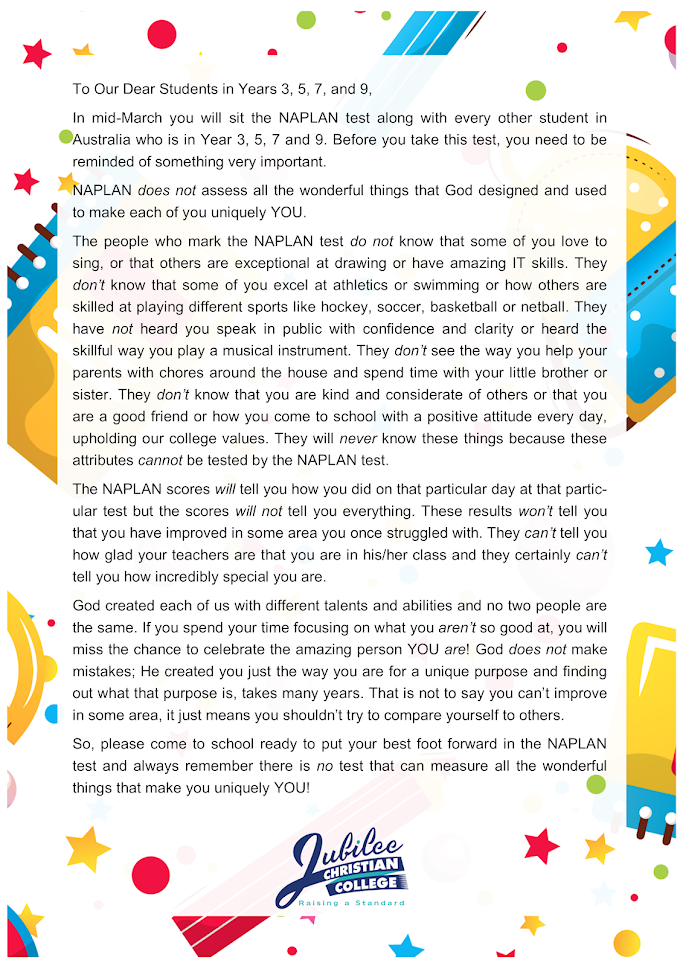Note to students sitting NAPLAN
Next week you will sit the NAPLAN test along with every other student in Australia who is in Year 3, 5, 7 and 9. Before you take this test I wanted to remind you of something very important. NAPLAN does not assess all the wonderful things that God designed and used to make each of you uniquely YOU. The people who mark the NAPLAN test do not know that some of you love to sing, or that others are exceptional at drawing or have amazing IT skills. They don’t know that some of you excel at athletics or swimming or that others are skilled at playing different sports like hockey, soccer, basketball or netball. They have not heard you speak in public with confidence and clarity or heard the skillful way you play a musical instrument. They don’t see the way you help your parents with chores around the house and spend time with your little brother or sister. They don’t know that you are kind and considerate of others or that you are a good friend or that you come to school with a positive atti...




Comments
Post a Comment